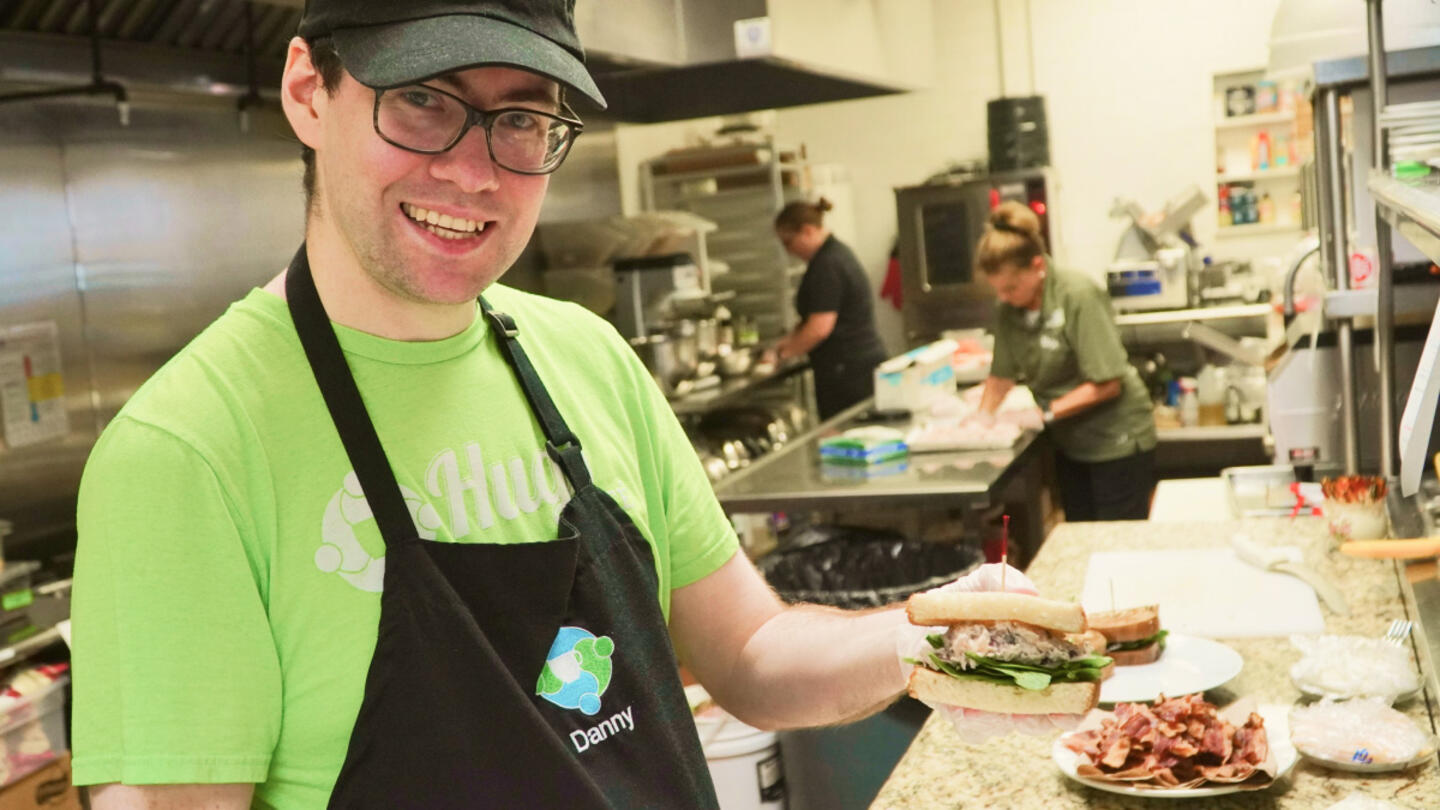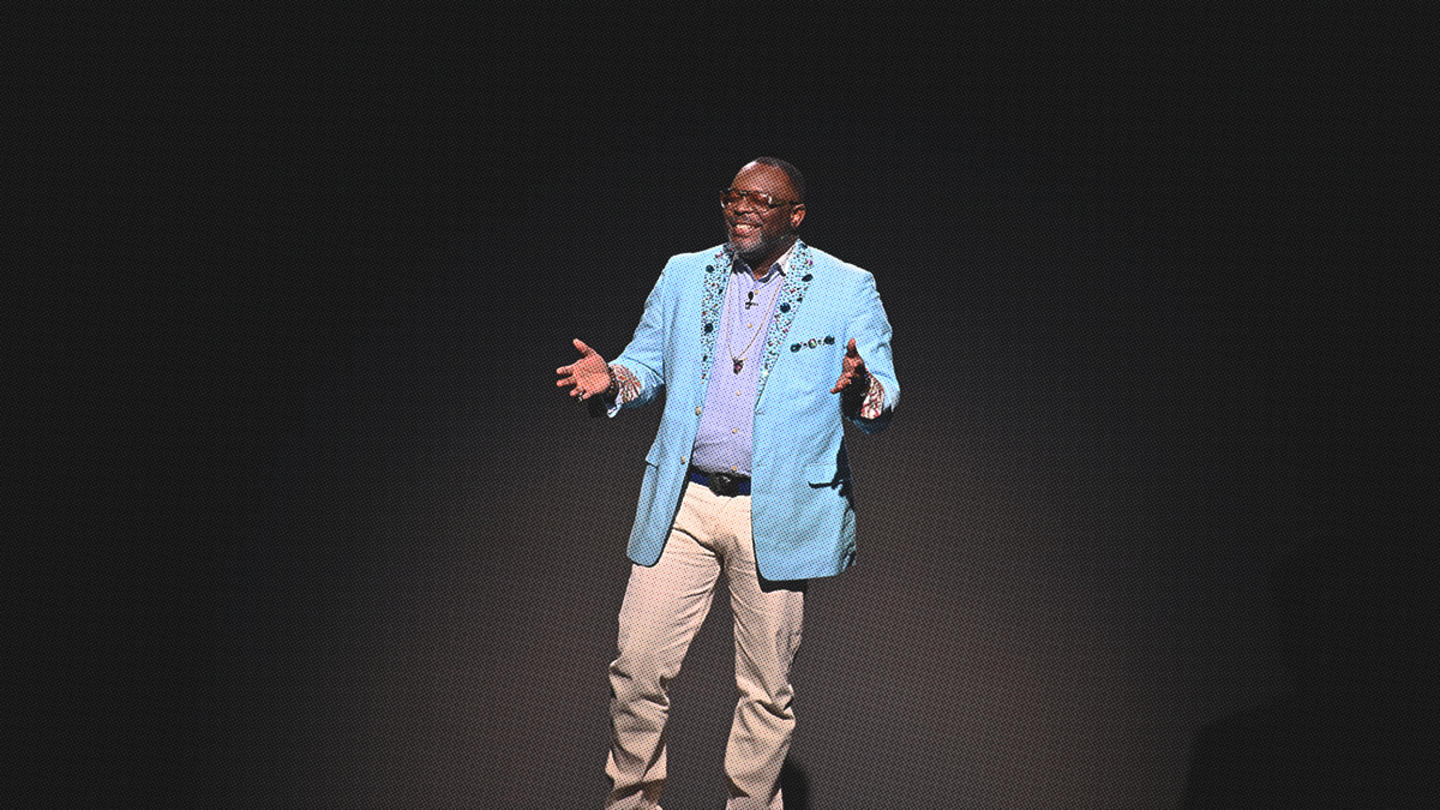In July of 2016, tensions erupted between U.S. law enforcement and the communities they serve after a string of killings.
First, police in Baton Rouge, Louisiana, killed Alton Sterling, resulting in protests across the country as people demanded justice. The next day, officers fatally shot Philando Castile of Minneapolis at a traffic stop, leading to more unrest and anger. Then an armed gunman opened fire on police in Dallas, killing five officers. The Rev. DeForest Soaries, a pastor and community leader, said the city was "a powder keg on the verge of exploding."
The moment called for a peacemaker who could heal the relationship between police and the people they are sworn to protect.
That person was Bishop Omar Jahwar, a Dallas community leader with two decades of activism under his belt. He was known for successfully bringing rival gangs together and addressing violence in urban neighborhoods.
Bishop Omar's work in the aftermath of the Dallas shooting catalyzed a movement that continues today: Heal America, a network of social entrepreneurs who use peace, love, and healing to drive tangible progress in communities across the United States.
Collaboration between different people emerges out of Dallas shootings
Bishop Omar was Texas' first state-appointed gang specialist and the founder of Urban Specialists – a Dallas-based community group aimed at curbing juvenile violence. As unrest unfolded in the summer of 2016, Urban Specialists expanded its role, taking to the streets to help passionate protesters continue advocating peacefully to prevent rioting and calm fears. But tensions were still high and there was still much to accomplish.
"Omar firmly believed that his experience in bringing rival gangs together would work to heal other deeper divides throughout our nation," Soaries said.
That belief led to a 2018 event on the 50th anniversary of Dr. Martin Luther King Jr.'s assassination. Bishop Omar brought together Sterling's family, two widows of police officers killed in Dallas, and other leaders to recognize the common ground in shared pain and the opportunity to chart a constructive path forward. He created a space for attendees to hear different experiences, and solutions to unify our country, urging them to empathize with one another despite their differences.
The momentum of that night ignited the "Heal America Tour" in which Bishop Omar's team hit the road to hold similar conversations across the United States, including in Detroit, Dallas, Atlanta, and Chicago. But the movement's growing success was soon followed by more tragedy.
Sign up for the Strong & Safe Communities newsletter for stories, ideas, and advice from changemakers working with their neighbors to address the biggest problems we face.
Heal America doubles down on its mission after George Floyd's murder
The murder of George Floyd in 2020 reinforced the importance of Bishop Omar's work. He took the tour to Minneapolis to discuss solutions to the injustice with local leaders and city officials.
Heal America hosted an event in Chicago, where people who experienced injustices firsthand shared their stories and discussed solutions.
Leon Ford, a justice reform advocate, shared his experience of police brutality: "I was shot five times by a police officer and there has not been any accountability."
Ryan Tillman, a police officer and the founder of Breaking Barriers United, an organization aimed at transforming law enforcement, business, and education through relationship-building, replied, "On behalf of police officers, man, I'm sorry. It's my vow to everybody on this panel that I will do my best to be a change from within."
Tillman, a Heal America ambassador, has spoken to more than 40,000 K-12 students about the importance of empathy when mending police-community relations. His work, much like his fellow speakers at the 2020 convening, promotes finding common ground – even when it is difficult or feels unlikely.
Heal America exerted a profound influence on both local communities and the nation with its work since that first event, subsequent tours, and now through current initiatives like the Summer of Healing. In 2023, the Summer of Healing awarded $267.5K to eight organizations disrupting rising violence and tensions with police. The initiative united people dedicated to solutions, with over 1,400 people participating in local programs across seven cities — Dallas, Atlanta, Pittsburgh, Indianapolis, Baltimore, Chicago, and Columbia, S.C.
Bishop Omar died in 2021, but his legacy lives on in Heal America.
"If we work together, and arm ourselves with love and redemption," said Soaries, a co-chair of Heal America. "There is no divide, there is no obstacle, there is no challenge we cannot overcome."
***
Heal America is supported by Stand Together Foundation, which partners with the nation's most transformative nonprofits to break the cycle of poverty.
Learn more about Stand Together’s efforts to build strong and safe communities and explore ways you can partner with us.

People with disabilities want meaningful work — and Hugs Cafe is making it happen.

At this ‘resort,’ children with intellectual disabilities are seen as gifts to be celebrated and loved.

Veterans experience loss when leaving service. Could this be key to understanding their mental health?

The Grammy-nominated artist is highlighting the stories we don’t get to hear every day.
